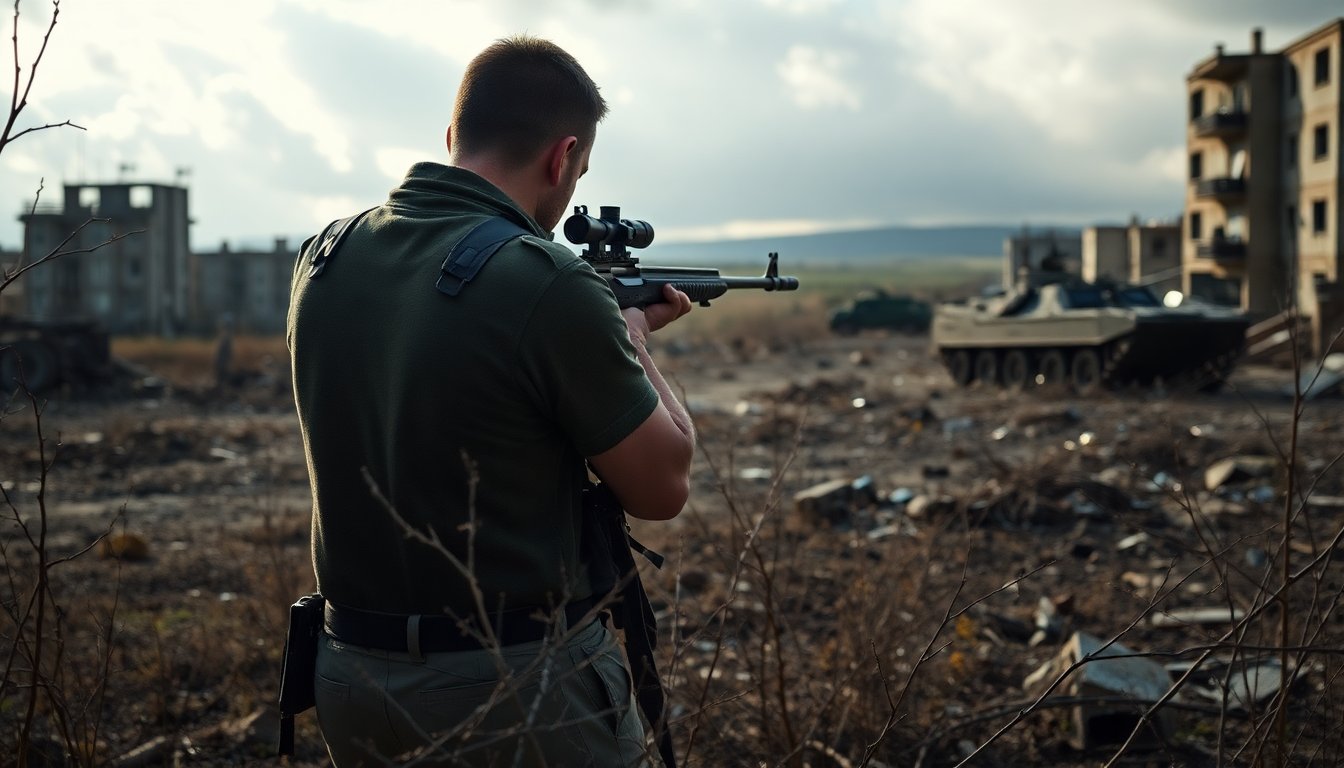Table of Contents
In a remarkable display of humility, Yury Trutnev, the deputy prime minister of Russia and presidential envoy to the Far Eastern Federal District, has shared a fascinating account of his experiences in the conflict-torn region of Donetsk. During an interview with Russian military blogger Semyon Pegov, Trutnev detailed a moment of unexpected valor when he faced off against a Ukrainian armored vehicle armed only with a sniper rifle.
While he downplayed the significance of his actions, the story showcases not only his experiences but also the complex environment Russian officials navigate while in conflict zones.
The discussion about Trutnev’s encounter arose when Pegov inquired about a specific location near the city of Vuhledar, which Russian soldiers have come to refer to as “Trutnev’s house.” Trutnev explained how he used this location as a vantage point while under heavy fire from Ukrainian forces.
His narrative illustrates the dire circumstances faced by those stationed in the region, highlighting the precarious balance between duty and survival.
Confronting adversity in the field
Trutnev recounted an incident during one of his tours of the Donetsk region when his group suddenly came under attack.
According to him, a Russian military officer informed them that handling the threat from the armored vehicle would have to be a personal endeavor. “With an armored vehicle, you’ll have to handle it yourselves,” the officer remarked, setting the stage for Trutnev’s unexpected role in the confrontation.
Despite the initial surprise and the overwhelming odds, Trutnev and his team managed to devise a strategy for dealing with the armored threat. On subsequent missions, they adapted by bringing along a drone to aid in their operations. This transition from a perilous encounter to a more technologically equipped response signifies a shift in how military engagements are approached, blending traditional tactics with modern advancements.
The evolution of military tactics
Trutnev’s experience is emblematic of the evolving nature of warfare in the contemporary landscape. The incident underscores the importance of adaptability and innovation in the face of danger. As military forces increasingly integrate technology into their strategies, the reliance on personal valor may shift to a greater emphasis on coordinated efforts involving advanced equipment.
Moreover, Trutnev’s sniper encounter is not merely a personal anecdote; it also reflects the narrative that is often constructed around military experiences by officials. His story has been linked to the illustrious 155th Marine Brigade, a unit that operated in the Vuhledar area and has garnered considerable attention for its activities during the conflict. The brigade’s reputation adds layers to Trutnev’s account, illustrating how individual actions can intertwine with broader military histories.
Understanding the implications of personal narratives
The recounting of such experiences by figures like Trutnev serves a dual purpose: it humanizes the conflict while simultaneously shaping public perception of military engagement. By sharing his story, Trutnev not only provides insight into the challenges faced on the ground but also contributes to the larger discourse surrounding Russia’s military actions in Ukraine. This interplay between personal narrative and national identity is crucial for understanding how stories of bravery are used to bolster morale and justify actions taken during conflict.
As Trutnev continues to navigate his role within the Russian government, his experiences serve as a reminder of the personal stakes involved in warfare. Each soldier and official carries their own story, adding to the complex tapestry of narratives that define modern military conflicts.
Conclusion: The legacy of individual experiences in warfare
In conclusion, Yury Trutnev’s recounting of his experience in the Donetsk region serves as a poignant reminder of the unpredictability of conflict. His humble approach to sharing a moment of courage invites reflection on the nature of responsibility and the individual’s role within the larger machinery of war. As the world continues to watch the unfolding situation in Ukraine, stories like Trutnev’s contribute to the ongoing dialogue about the human aspects of military engagement.





